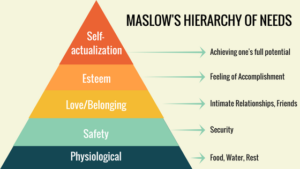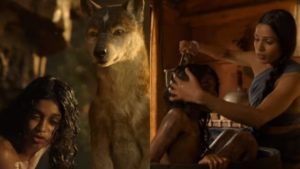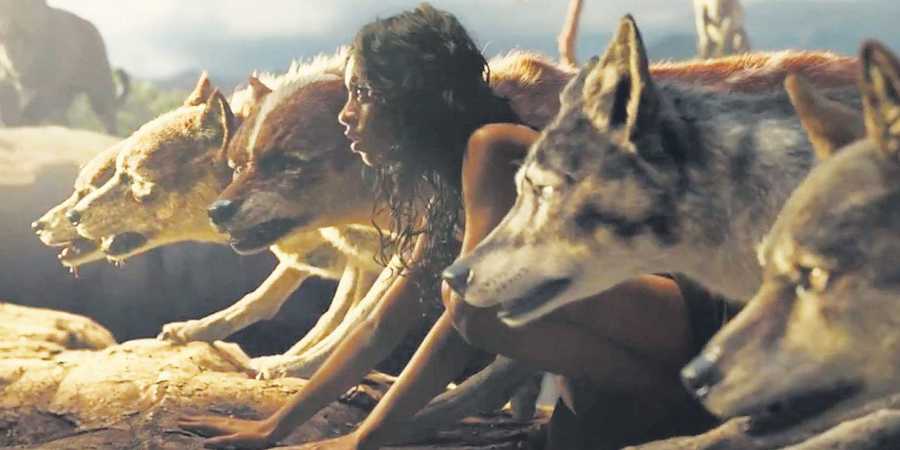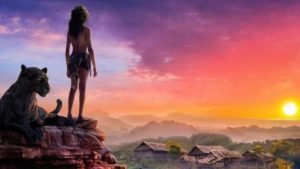During my Christmas movie binge, I watched Rudyard Kipling’s classic masterpiece ‘Mowgli- the legend of the jungle’. It reminded me of my childhood obsession with a boy who could speak to animals and survive in the jungle. It had inspired me in so many ways as a kid. I wanted to be like him. Now, as an adult, I can relate to it in the context of ‘Life’
You do find parts of yourself in times of adversity
In the film, Mowgli tries very hard to belong to the wolf pack. He looks different, feels different, and does not have the same agility and speed as the wolves do. He tries to run like them (on his fours), eat like them, and dreams of becoming part of the pack. When his teacher Baloo tests his survival skills, he resorts to his instinctive ways of running (On two legs). Even though he fails his test, he learns that he was fast and did his best and knows that Bagheera had specifically targeted him.
Many of us can relate to Mowgli. In times of adversity, we use our strengths and fight as hard as we can and yet sometimes, we fail! Bagheera had targeted Mowgli so that he could go back to the man village where he would be safe from Khan (The Tiger who wants Mowgli dead). As human beings, we often try to ‘fit in’ where we don’t belong. It is human nature to question where we belong because that adds to our identity. According to Abraham Maslow, ‘Belonging’ is an innate human need. Mowgli does feel rejected. His ‘lower esteem’  (need for respect from others) is shattered but he discovers that he isn’t weak; he was fast and up to speed with the other wolves. He knows that he is competent. He used different methods to fulfil the purpose (or prove his ability) but Bagheera (circumstances) had something else in mind for him.
(need for respect from others) is shattered but he discovers that he isn’t weak; he was fast and up to speed with the other wolves. He knows that he is competent. He used different methods to fulfil the purpose (or prove his ability) but Bagheera (circumstances) had something else in mind for him.
It doesn’t matter where you belong, your skills and abilities will walk by your side
Mowgli has an important realisation when Bagheera tells him “I thought I could teach you to be like everyone else (in the jungle)”. He realises that no matter how hard he tries to be a wolf, he will always wake up as a man. His realisation creates an internal conflict of belonging. In society, our biggest influencers tell us who we are. Our  parents, the education system, our friends and communities- they add to our characters. Do we have to be like everyone else? Not really, but we do need to be able to survive with everyone else. Mowgli decides to unlearn his ways and re-learn the human ways when the hunter in the human community tells him “you are a quick learner” (while Mowgli learns how to use a knife to slit a carcass).
parents, the education system, our friends and communities- they add to our characters. Do we have to be like everyone else? Not really, but we do need to be able to survive with everyone else. Mowgli decides to unlearn his ways and re-learn the human ways when the hunter in the human community tells him “you are a quick learner” (while Mowgli learns how to use a knife to slit a carcass).
Mowgli is in a new world where he cannot communicate or interact as easily with people (in the man village) but his quality of being ‘A quick learner’ wins the hunter’s heart and he is soon accepted in the community. In life, we transition from one job to another, one country to another or from a manager to a leader. Our qualities constantly provide us with opportunities to feel accepted. Social Darwinists suggest that ‘The fittest’ may not always be the one who is competing individually but the one who is co-operative. Mowgli was used to living with wolves in a pack and he transfers his social skills within the human community.
We create ourselves in every moment
In the end, Mowgli states ‘I am not a man But neither am I a wolf’. After the constant need for approval, rejection from the wolf pack and learning the truth about the hunter; Mowgli realises his purpose. He becomes resourceful and uses his instincts, his knowledge and confidently plans a way to get rid of the tiger and the hunter. Imagine if Mowgli had just gone back to being human or agreed with the laws of the jungle (as the wolves did). Instead of following a crowd, he created himself in a new moment – he found the path to self-actualisation. He realises that the problems of the Jungle and the Man-village are much bigger than his need to belong.
We are part of families, communities, sports teams and we have labels which make us feel like we belong in those social groups. We grow up living up to these labels for most of our lives. We limit ourselves and allow our ‘need’ for belonging to determine our purpose. Our purpose in life is merely our ability to put our ‘basic human needs’ aside and focus on the bigger picture. You can be who you want to be. Just like Mowgli, you are not a man but neither a wolf- you can decide who you are every single moment.
Next time you watch Mowgli, put yourself in his shoes and allow yourself to create a new ‘you’ who has those qualities to fulfil your purpose in that very moment.
Please feel free to leave your comments and views! For further discussions on the topic, please contact me at sarah@sarahmajid.com
Please note that this blog is based on the writer’s interpretations of research, applied knowledge and experience working as a Trainee Sports and Exercise Psychologist.
Sarah Majid
Trainee Sports and Exercise Psychologist
Bristol Academy of Sports

